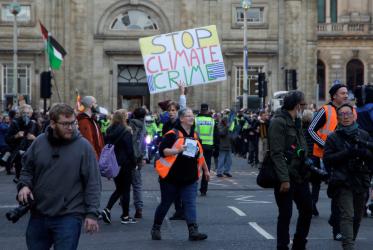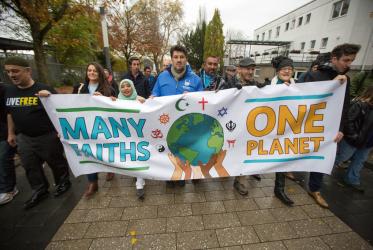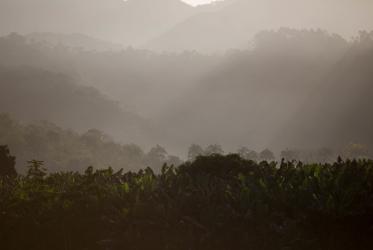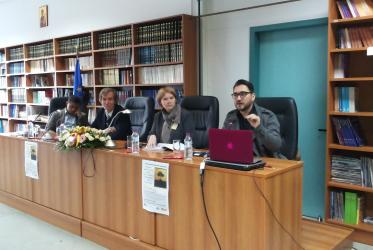Displaying 1 - 20 of 21
Rethinking Ecological Relationships in the Anthropocene era
11 - 13 February 2021
WCC moderator speaks at Justice Conference in Norway
09 November 2018
WCC Eco-School encourages youth to become eco-ambassadors
08 November 2018
COP 23 “debriefing” brings faith and ethical perspectives
23 January 2018
Protect the Amazon, urges WCC statement
22 November 2017
Theology and climate change focus of consultation
16 March 2016
Tveit on the “Ten Commandments” of food
26 January 2016
Land rights focus of panel discussion
17 November 2015












